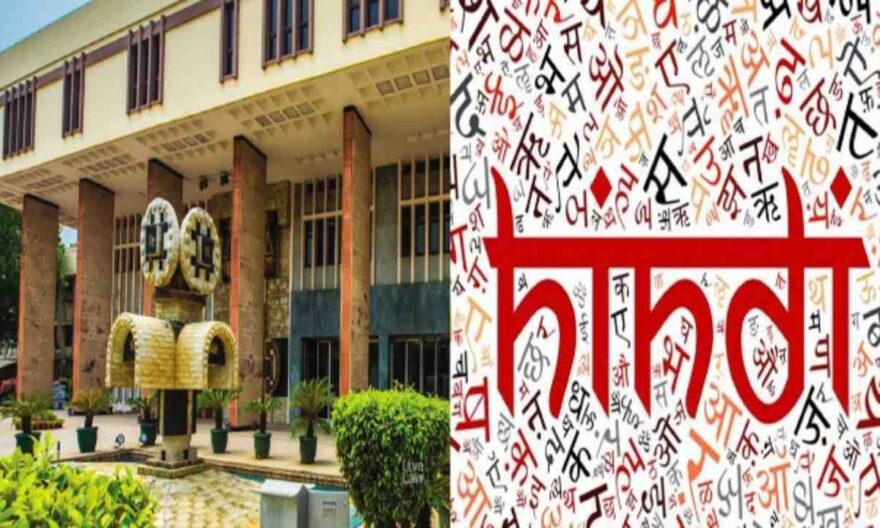
The Delhi High Court has recently granted a final opportunity to both the Central and Delhi governments to respond to a Public Interest Litigation (PIL) that declare Hindi as the language for recording depositions in criminal courts within the capital.
A bench of Chief Justice Satish Chandra Sharma and Justice Sanjeev Narula have scheduled the matter for further hearing on October 19, 2023.
The Social Action Forum for Manav Adhikar, an organization, has filed this PIL in the High Court. It seeks a directive to designate Hindi as the language for recording depositions in criminal courts, including POCSO Courts and Juvenile Justice Boards in Delhi.
Initially filed in 2019, the PIL also urges amendments to the Delhi District Courts Establishment (Appointment & Conditions of Service) Rules, 2012, to stipulate Hindi typewriting skills as an eligibility criterion.
The petitioner entity shared that it offers legal aid to individuals from marginalized, uneducated segments of society who are victims of child sexual abuse, assault, rape, and domestic violence.
The organization contends that although testimonies are given in Hindi, they are recorded in English, leading to a denial of justice for victims unfamiliar with the recorded content.
The plea mentioned, “Frequently, the essence is lost in translation, words twisted, and crucial circumstances determining the nature of the crime distorted. Due to the recording not being conducted in the language of deposition, which is Hindi, but in English, the outcome often results in a high rate of acquittals in criminal cases.”
“The First Information Report (FIR) is documented as per the victim’s statement, i.e., in Hindi. Even the statement under CrPC Section 164 is handwritten by the Hon’ble judge in Hindi. However, during their testimony in court, the language of recording changes. It is unsurprising that the conviction rate in POCSO judgments from the six courts in Delhi — Saket, Dwarka, Rohini, Patiala House, Tis Hazari, and Karkardooma — is below 20%,” it added.




